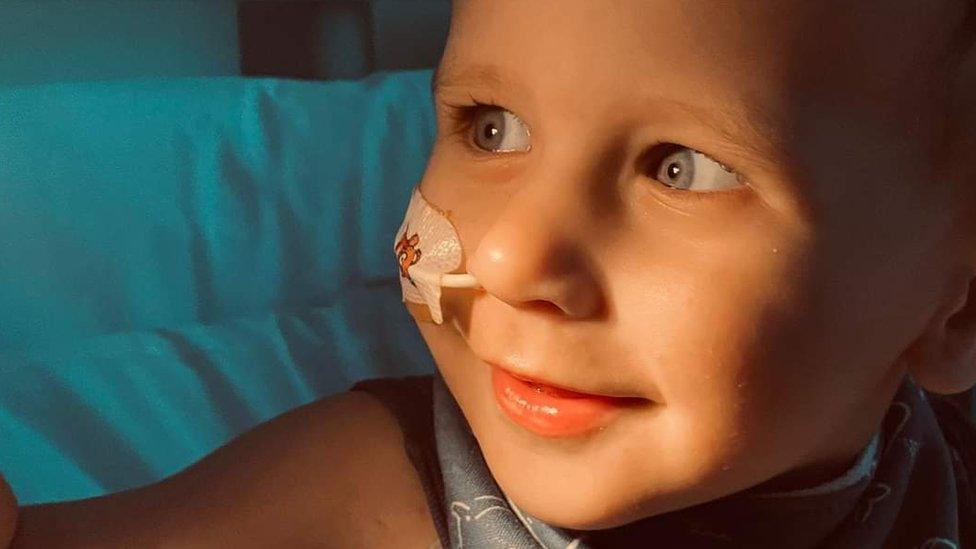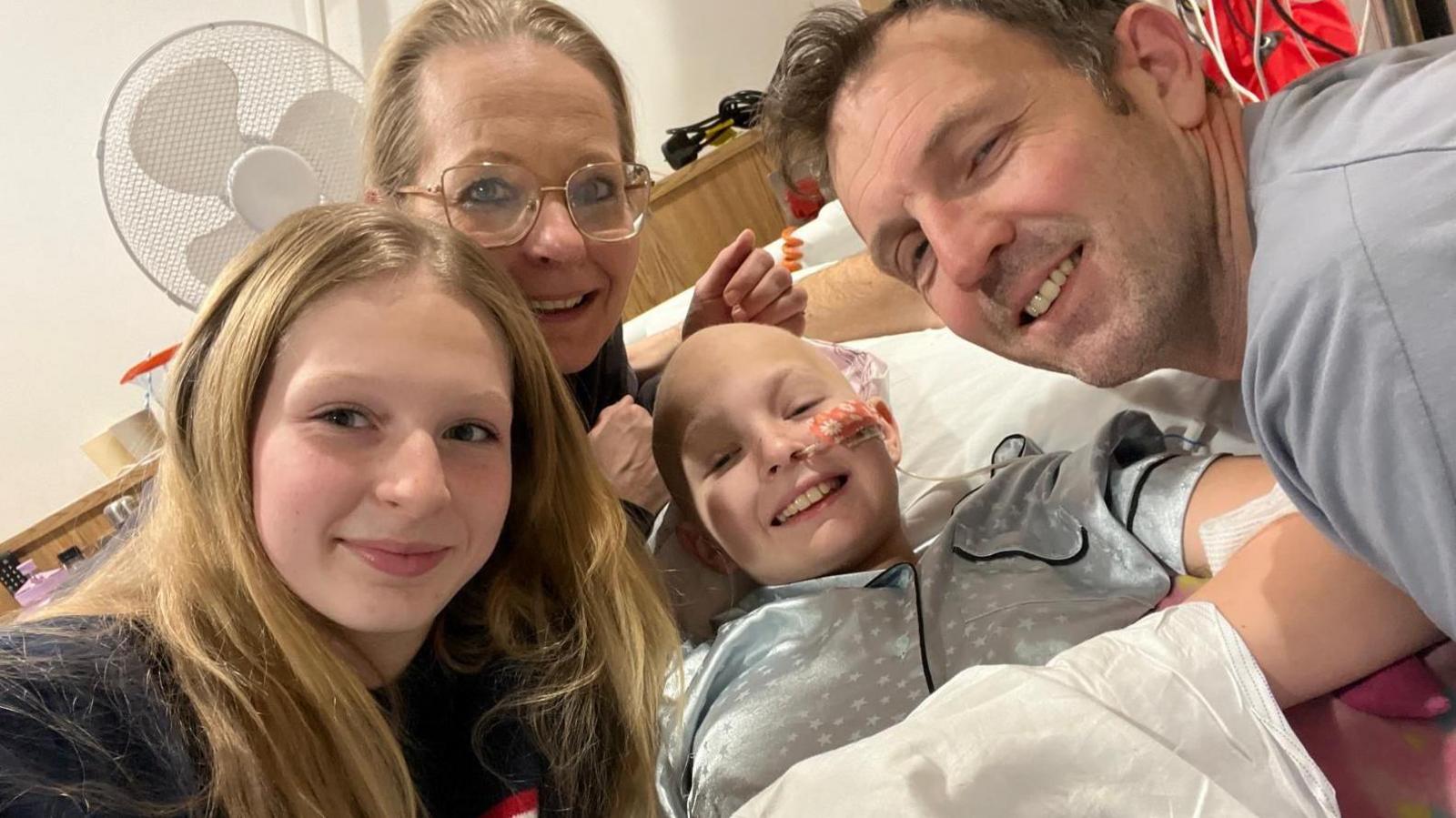Parents of kids with rare gene disorder raise £70k
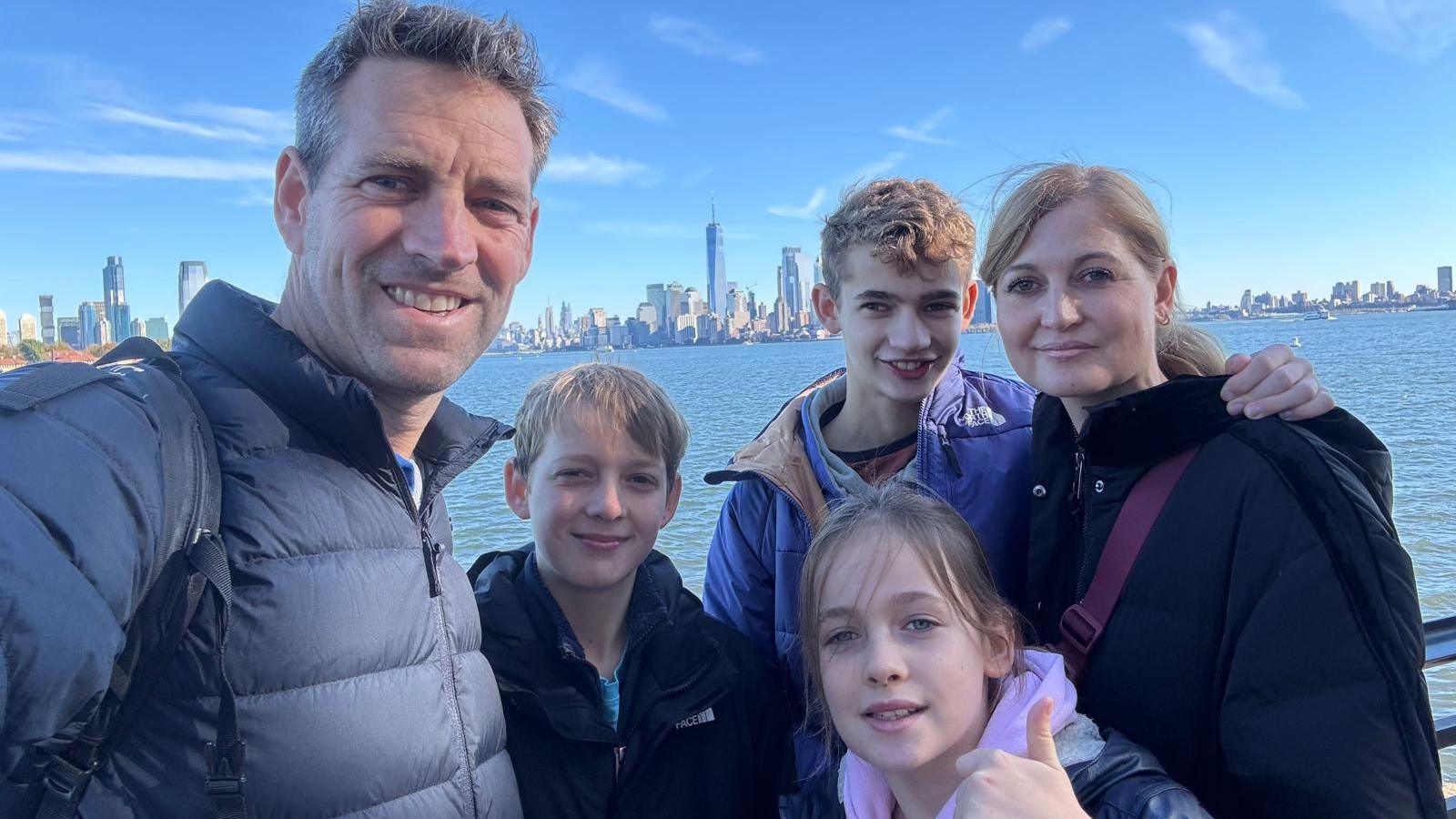
Parents Mel and Charlie organise events through their charity, Cure DHDDS, to raise money for treatment
- Published
The parents of two children who have an incurable genetic disorder have raised £70,000 with a nine-hour walk across London.
In 2020, Mel Dixon, 46, and her husband Charlie, 47, from East Sheen, south-west London, received the "heartbreaking news" two of their three children – Tom, 15, and Rosie, 10 – carry a mutation of the DHDDS gene.
The couple were told there were only 59 confirmed cases worldwide – although there are 80 documented now – and there was no treatment or cure, leaving them "devastated".
The neurodegenerative condition causes seizures, tremors and neuro-developmental delays and, of Tom and Rosie's particular gene mutation, Mel said there were only seven cases confirmed worldwide.
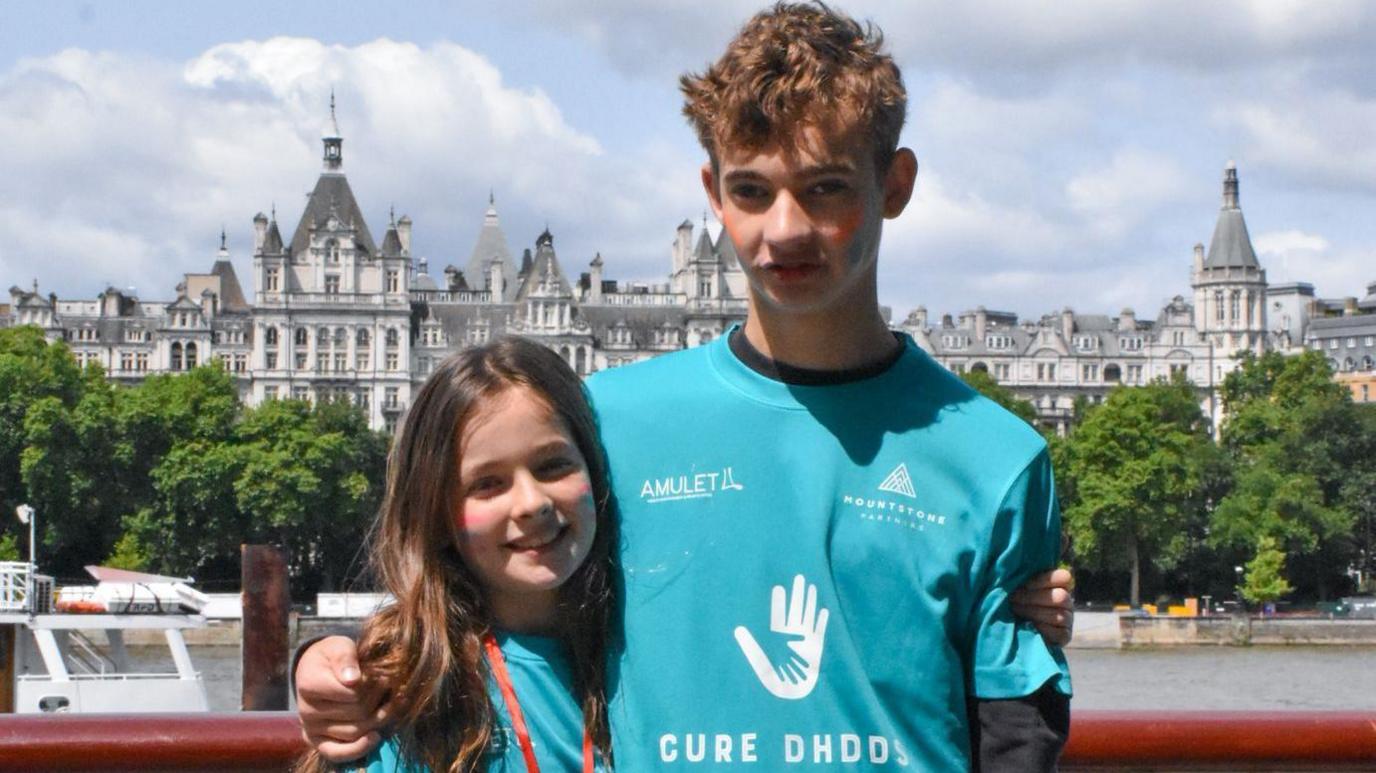
Rosie and Tom were diagnosed with a DHDDS gene mutation in November 2022
To fund research into treatments and therapies, on 8 June, the couple organised a charity "warrior walk", which saw 130 people take to the Thames Path in London, walking 40km, 20km or 7km.
Mel said their nine-hour walk was challenging and "emotional", but it was "amazing" to see everyone come together.
Mel and Charlie, who also have a 13-year-old son, Harry, organised several events through their charity, Cure DHDDS, including a 50km walk in July 2023 and a 950-mile tandem bike ride in August 2024.
Mel said: "[The donations] mean everything because, without them, we can't fund the research and, without the research, we're not going to get treatments – it's that simple."
Tom and Rosie were late with milestones such as walking and speaking, and both were diagnosed with mild learning difficulties and dyspraxia, which affects their co-ordination, while at primary school.
They underwent whole genome sequencing testing, which can detect changes in a person's genetic make-up, and the DHDDS gene mutation was discovered.
"They've got one 'spelling mistake' [a mutation] in a very important part of their DNA," Mel said.
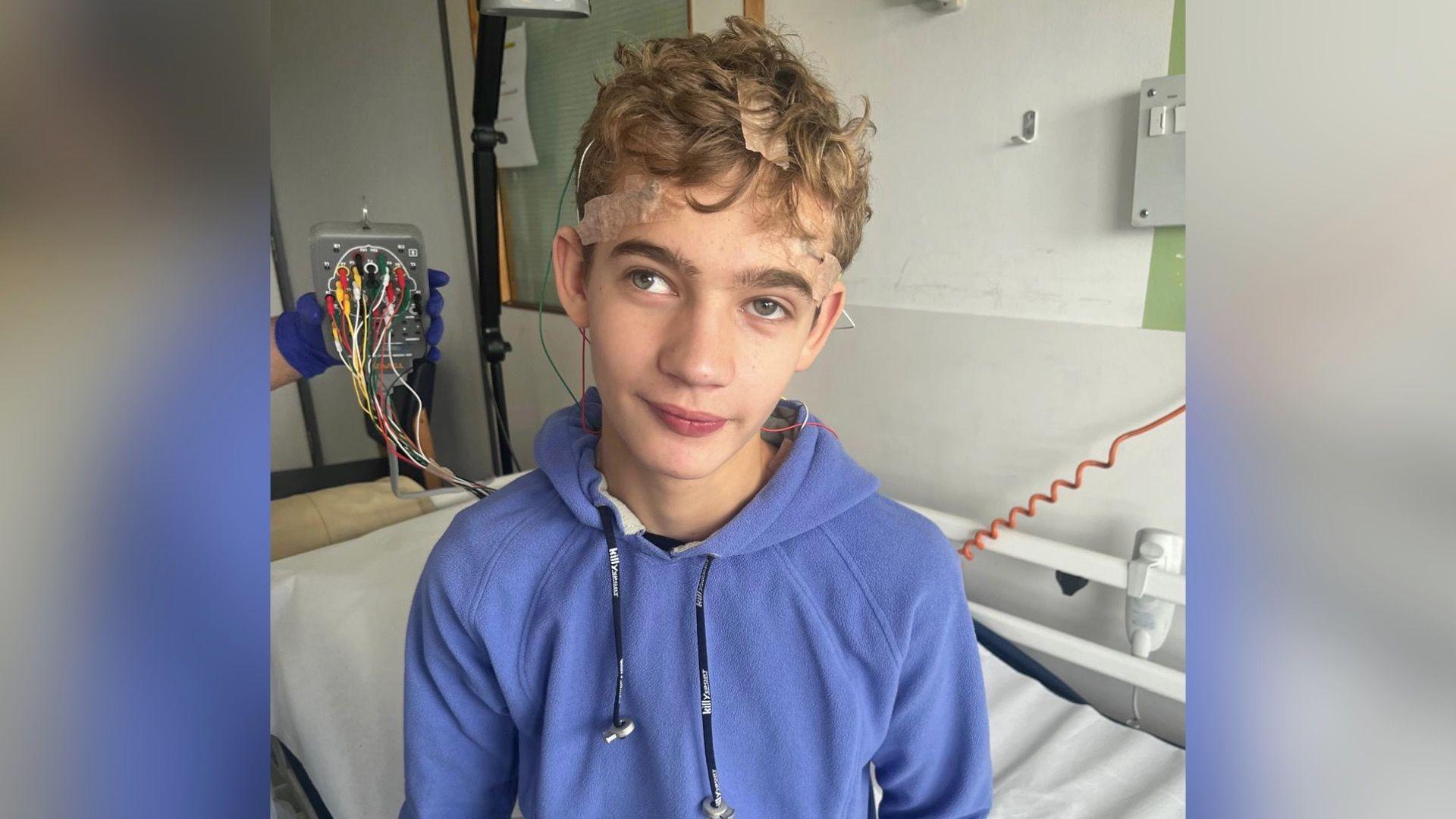
Tom underwent genetic testing at St George's Hospital
At the time of their children's diagnosis, the couple were told there was no treatment available and the condition was neurodevelopmental, neurodegenerative and ultra-rare.
Without treatment, symptoms such as psychosis, Parkinsonism and cognitive decline can take hold of many DHDDS patients.
"The geneticists told us it's up to us as parents to fund and drive the search for a cure," Mel said.
"They both have so much joy to give the world and are more than worth every bit of this fight."
Mel and her husband believe the vitamin biotin has helped to reduce the children's tremors, meaning drinking from a cup is now "more manageable" for them.
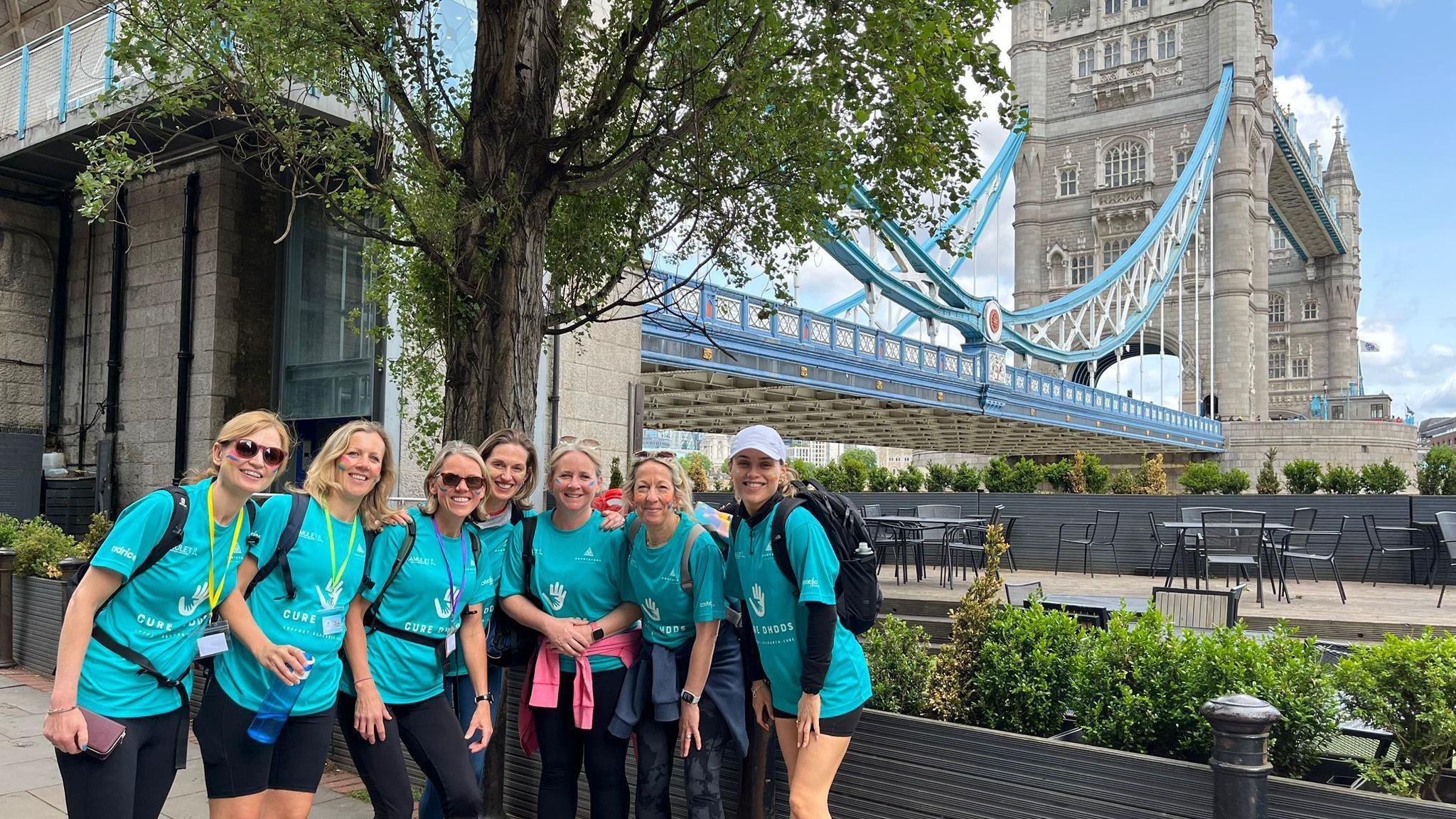
Mel and Charlie are working toward a £1.5m fundraising goal
With their charity, Mel and Charlie are working toward a £1.5m fundraising goal to support drug repurposing research and gene therapy development.
"The huge thing for us is being able to have hope," Mel said.
"Not having hope, it almost feels like you're giving up on the kids and you're not giving them the possibilities of a better future.
"Every advancement that's been able to happen in science is because someone's refused to accept the limitations that are there currently."
Listen to the best of BBC Radio London on Sounds and follow BBC London on Facebook, external, X, external and Instagram, external. Send your story ideas to hello.bbclondon@bbc.co.uk, external
Related topics
Similar stories
- Published7 April 2024
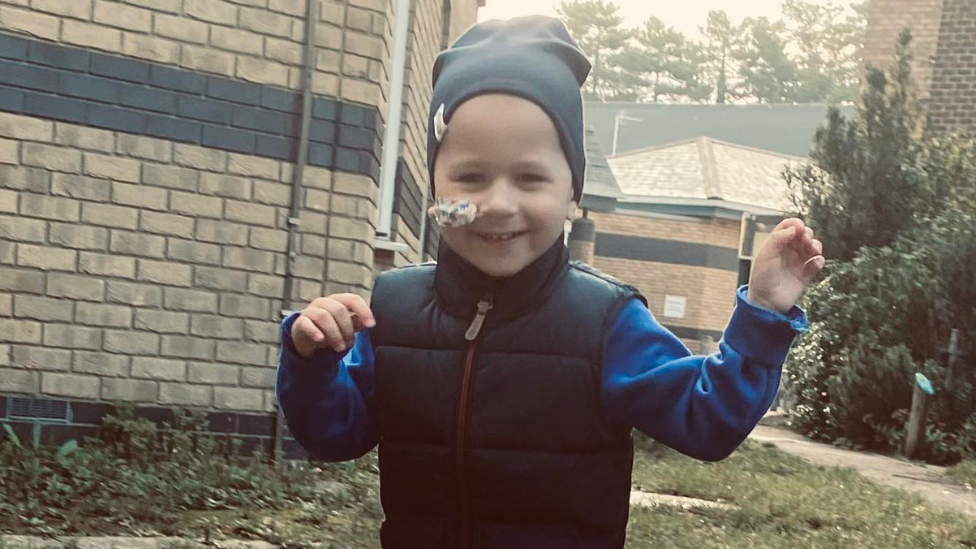
- Published28 February 2024
